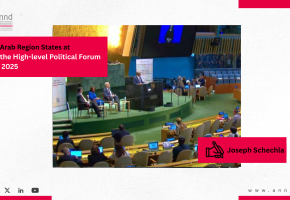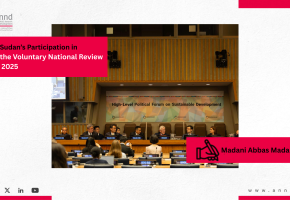
The Private Sector and Sustainable Development in Mauritania
The Private Sector and Sustainable Development in Mauritania - Download full report.
Introduction
First: Background
Encouraging domestic and foreign private investments is a strategic option for Mauritania and in line with the SDGs. They are critical in achieving development options announced in the Strategy for Accelerated Growth and Shared Prosperity 2016-2030 and the Economic Recovery Plan 2020-2023, intended to address the COVID-19 pandemic and advance the economy. The strategy and related programs rely on the private sector’s active participation in exploiting the country’s many natural resources (gas, iron ores, fish, gold, livestock, copper) while diversifying its economic base to contribute to poverty eradication and job creation.
By adhering to IFI rules and conditions, Mauritania hopes to attract significant foreign funding and investments. However, such an approach could entrench economic and financial dependency. It could also maintain a developmental trend that had failed to give tangible results over the past decades and created permanent dependence on external factors rather than local capacities.
In Horizon 2025, Mauritania adopted a strategy for advancing the private sector that combines overcoming obstacles that limit its effectiveness with creating a conducive environment to stimulate and attract businesses. Accordingly, it introduced many regulatory and legislative reforms (the Higher Council for Investment in February 2020, the 2017 PPPs law that was amended and developed in 2021, the 2012 investment law, the exclusive economic zone in Nouadhibou 2013, and reforming the commercial law). It also established a regulatory framework to facilitate the involvement of businesses in construction contracts. In addition, it ratified many bilateral and multilateral international investment agreements (agreements to encourage and protect investments and agreements to prevent double taxation).
However, several obstacles and challenges stand in the way of attracting local and foreign private investments and their effective contribution to sustainable development. The most prominent obstacles remain the difficulty in accessing sources of financing, the inadequate technical and professional training, the lack of governance, and the weak level of local private sector formation and organization. Moreover, they impede the control of company activities and their humanitarian (work accidents), social (collective expulsion), and environmental (pollution of drinking water and the marine environment) consequences. Thus, the problem of the ability to reconcile profitability and sustainable development arises. In addition, it concerns how local and foreign private companies adhere to human rights principles and environmental standards stipulated in local laws and legislation and ratified by international multilateral agreements.
The majority of investments in Mauritania, particularly foreign ones, were mainly concentrated in the extractive sectors related to iron, gold, copper, and oil. As a result, most of the foreign companies involved could conclude agreements and forge strong relationships to maximize their exploitation and protect them from accountability. However, these agreements with private foreign companies--whether in the field of fishing, minerals, or agriculture--have raised problems related to the weak financial returns, on the one hand, and the inability to monitor all the activities of powerful groups, on the other, reinforcing the need for accountability. Demands for accountability are beginning to appear in the context of a collective awareness led by several NGOs working on environmental protection, human rights, and governance. They have consistently raised the question of society’s lack of benefit from wealth, compared to the side effects that may result from private companies intensifying their activities in the country. Some of these active NGOs are also calling on the Ministry of Environment and Sustainable Development, established in line with international trends related to sustainable development, to be more rigorous in applying the Environment Code and respecting international agreements ratified in this regard.
The development of Mauritania’s private sector will remain dependent on the shift from traditional and unregulated commercial practice to institutionalization, regulation, and promoting the culture of business entrepreneurship. It will allow the private sector to effectively integrate into the national economy and reduce the role of the large informal sector.
This study seeks to reconcile the public and private dimensions and examine the strength of the interconnection between public and private interests. It will discuss the private sector’s pivotal role in development strategy, welfare, social justice, and respect for the environment. It will do so by proposing new controls for local and foreign private sector accountability to keep pace with its expanding role. It thus hopes to transcend the traditional view, confined to profitability even if at the expense of social, humanitarian, and environmental aspects, into a comprehensive and inclusive view of all sustainable development dimensions, which requires deep reforms aimed at encouraging the private sector.
The study of the marine fishing sector is an example of the positive economic impact of proper management and rationalization of resources to preserve the diverse fishery resources and contribute to integrating the sector further into the national economy through its ability to attract more local and foreign investments in addition to managing environmental risks (SDG 14), preserving marine and coastal environmental diversity, and reducing disaster risks. The importance of promoting this sector is due to its pivotal role in favor of the poor, food security, and the focus on people with high employment and cost-effectiveness capabilities (SDG 8). World Bank studies related to the assessment of natural resources indicate that the sector’s size exceeds 10 billion dollars.
A scientific and objective study of this topic requires analysis and diagnosis of developmental challenges. It also entails deepening research on the reality of the Mauritanian business sector to identify challenges and obstacles that require quick solutions to overcome all those imbalances paralyzing the private sector’s effectiveness. The situation has been persistent since adopting a liberal approach in the early 1980s, leading to structural reform policies and economic freedoms that guarantee competition and encourage the local and foreign private sector.
The preparation of this study required the adoption of an approach that combines descriptive analysis and a specific case study as a model that strengthens the theoretical presentation of the reality and prospects of the business sector in Mauritania.
The study is based on various documents related to the topic prepared by the relevant government sectors or financial institutions such as the World Bank, the International Monetary Fund, the African Development Bank, and international experts. It faced several obstacles, particularly the lack of statistics related to the development of companies, their size, and job opportunities arising from their activities, as indicated by the recent study published by the World Bank in May 2019 regarding the economic situation in Mauritania and the general business climate. In addition, some officials did not respond to requests for basic information and statistics for this study. However, some meetings were held with officials in entities related to private sector promotion (General Administration for the Promotion of Investment, the Nouadhibou EEZ Authority, the Chamber of Industry and Commerce, the National Union of Mauritanian Employers, and CSOs), in addition to some local and foreign investors.
The study is divided into two main sections.The first chapter of the first section presents Mauritania’s development challenges and the set of laws and regulations related to corporate accountability. The second chapter includes information on the local and foreign business sectors, foreign direct investments, the sectors that attract them, and PPPs. Part two focuses on the fishing industry in The Arab Watch Report on Economic and Social Rights 2021: The Private Sector and Sustainable Development in Mauritania the hope of highlighting its potential to attract local and foreign investment to contribute to sustainable development effectively.
Ahmad Waled Wild Mohammad Abidullah
Mohammad Ahmad al-Mahboubi
The Private Sector and Sustainable Development in Mauritania - Download full report.
This Publication is part of the ARAB WATCH REPORT 2021.
Recent publications

Arab Region States at the High-level Political Forum 2025 - Joseph Schechla
